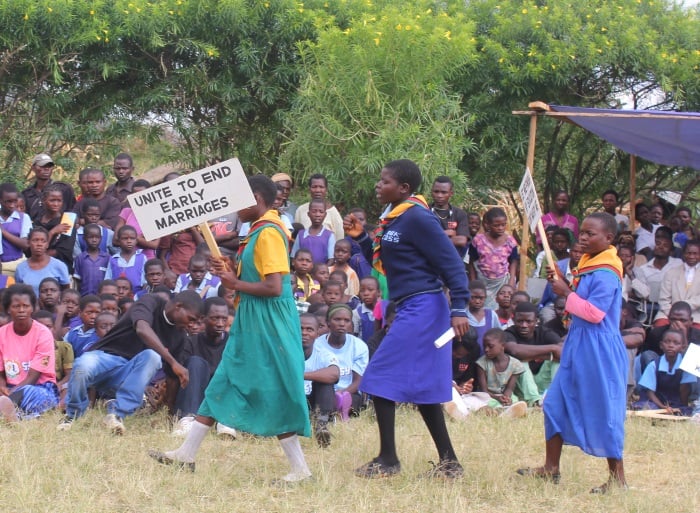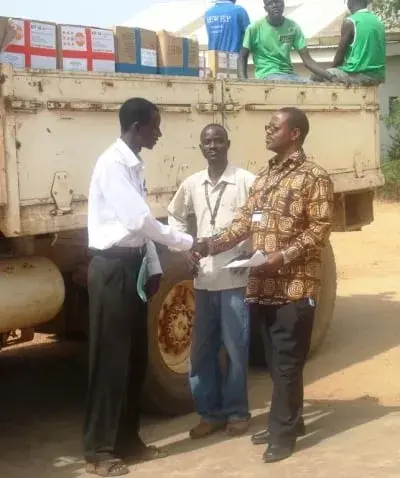LILONGWE, Malawi – Luwiza Lewis dropped out of school in Standard 8 after becoming pregnant. She was just 15 years old. But after giving birth she was determined to go back to school and continue with her education.
She has become an example of resilience and determination in her community, thanks to UNFPA’s Safeguard Young People (SYP) programme, a three-year regional programme in Southern Africa that is funded by the Swiss Government. Her vision, she says, is to become a secondary school teacher.
Luwiza is currently in Form 3 at Bembeke Community Day Secondary School in Dedza district. On this day she stands in front of a large crowd and tells her story to motivate others who, like her, may be dealing with a difficult life situation but have not yet developed their vision for a better life.
Keeping girls in school
 Luwiza Lewis walks with two girls holding messages against child marriage. Photo: UNFPA Malawi |
In Malawi, it is common for girls like Luwiza to get married once they become pregnant, never to return to school. An estimated 58 per cent of girls drop out of school and of those who continue with their education, 18 per cent became pregnant while still at school and 8 per cent marry. Only 25 per cent of girls finish primary school.
The SYP programme, through UNFPA, aims to start reversing these staggering indicators. It aims to empower young people in the area of sexual and reproductive health and rights, in order to reduce new HIV infections and other sexually transmitted infections, early and unintended pregnancies, unsafe abortions, child marriages, gender-based violence and harmful traditional practices. It promotes gender equality and protective sexual behaviours, among other protective barriers.
Most girls will benefit from UNFPA’s interventions in the six districts of Malawi where the SYP programme is currently focused.
Inspiring other girls
The crowd falls silent as she narrates her story in front of the Swiss Development Cooperation team during their visit to Malawi to assess progress on implementation of the SYP, since its inception almost a year and a half ago.
Says Luwiza: “My school friends used to tease me and some were saying I should go home to cook and take care of my child, but my vision is to get educated, get a job as a secondary school teacher and take better care of my child,” she said.
Luwiza has proved an inspiration to many girls in her community. Not only has she withstood persistent pressure from her child’s father to marry him, but she has weathered the ridicule of her fellow pupils, who describe her as a ‘mum in a classroom’. Her courage and determination to forge a better life for herself and her child provides an example for other girls - and young people in general - to follow in order to reach for their own aspirations.
By Henry Chimbali, UNFPA Malawi




